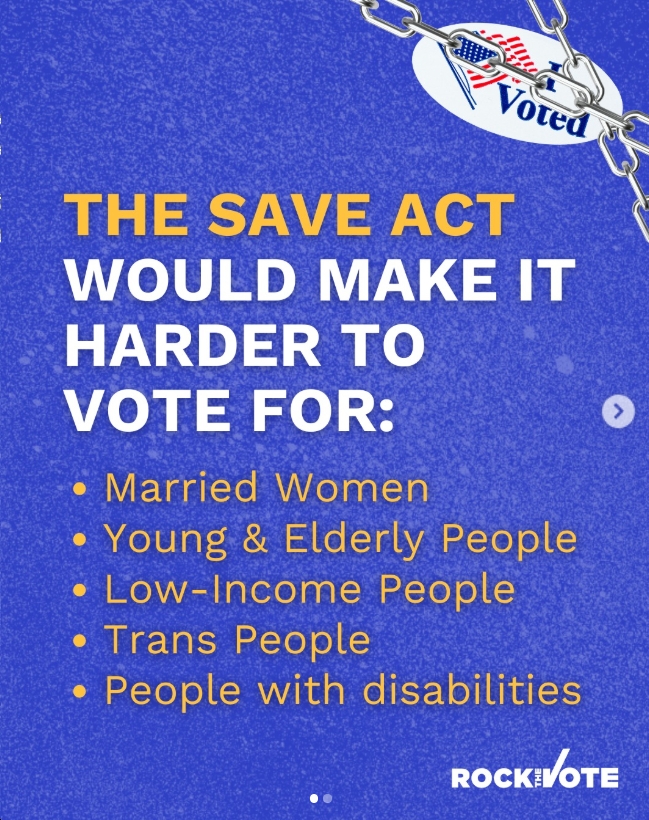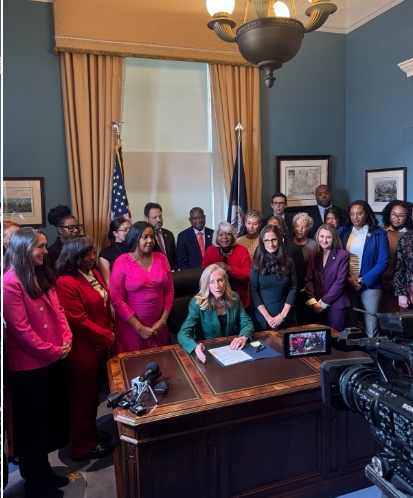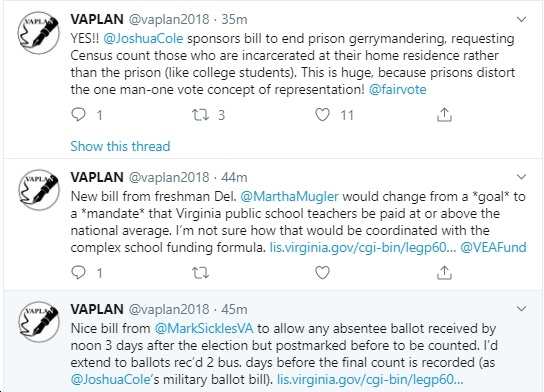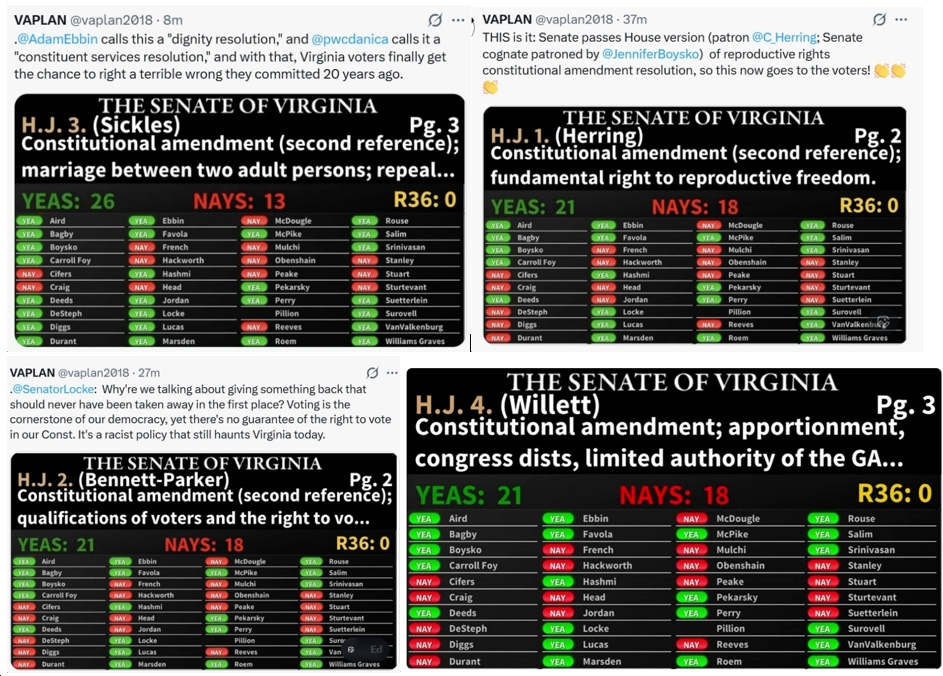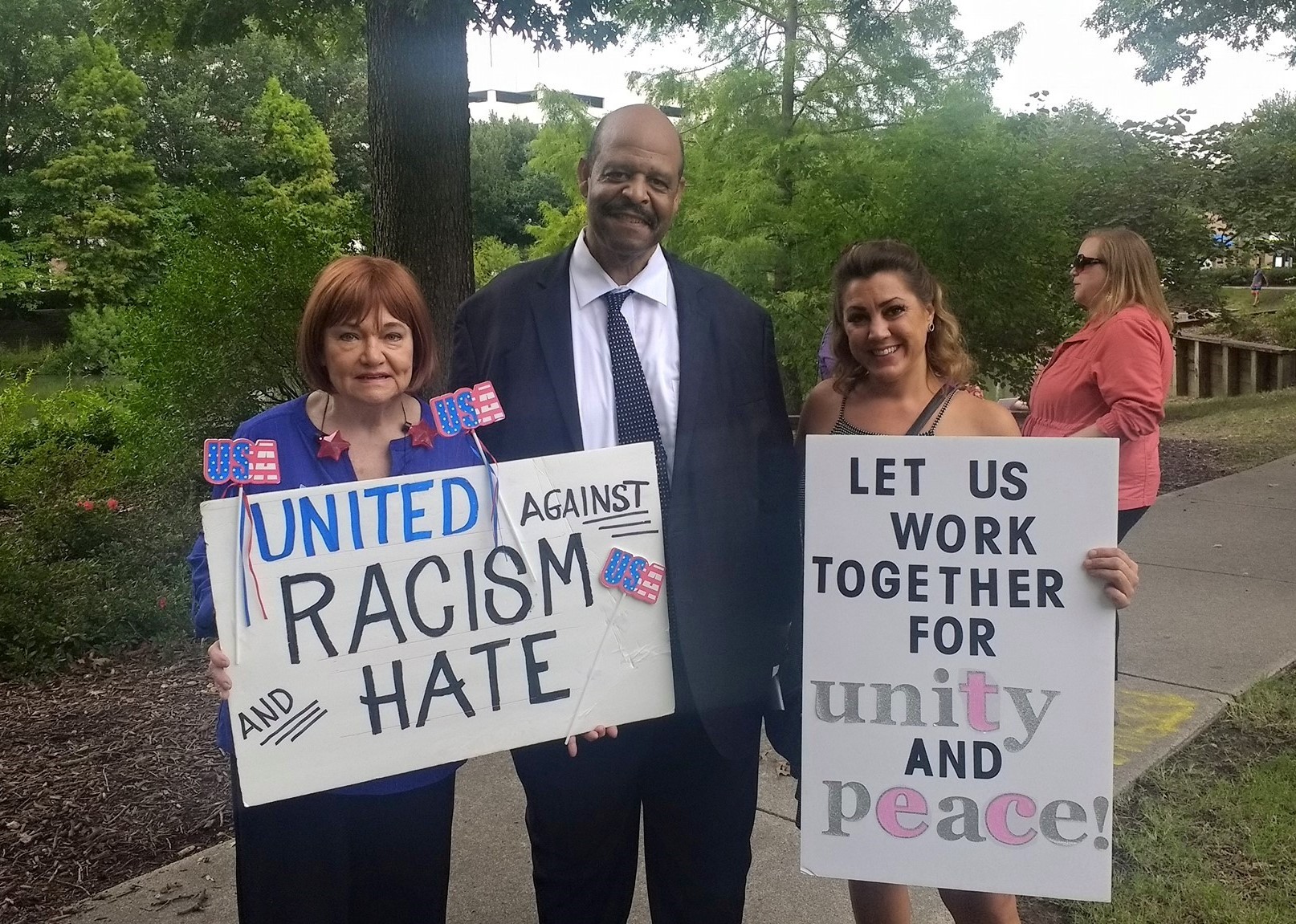by Paul Goldman, candidate for Lt. Governor
On the misleading language currently proposed by the General Assembly for the Redistricting Referendum on the November 2020 ballot.
Sadly, the Virginia General Assembly seems up to its old tricks on constitutional matters. Having been the campaign manager for Henry Howell and Doug Wilder, I learned early on what often goes on behind the scenes at the General Assembly. Professor Mark Rozell and I have written, for example, about why the Education Clause of the Virginia constitution does not say what almost all Virginians are sure it says. Indeed, I had occasion to point out this legal reality to a local Richmond columnist earlier today. Based on what Virginians have heard over the years, they naturally believe the constitution gives children a legally enforceable right to a high-quality education and equal educational opportunities.
This is not true. The General Assembly cleverly wrote Article VIII of the Virginia constitution years ago to deny children such a legal, constitutional right. This year, I tried again to get the General Assembly to begin the process of fixing this intolerable situation.
Accordingly, I am not surprised the General Assembly is again playing fast and loose with their explanation for the proposed Constitutional Amendment on redistricting that passed the General Assembly earlier this year. Article XII of the State Constitution controls this process. Having met the constitutional burden for General Assembly action on an Amendment, the General Assembly has put the matter to a vote of the people this November.
The General Assembly had two options in that regard. A plain reading of Virginia Code Section 30-10 seems to require the entire wording of the proposed amendment be put to the people for a vote. But Article XII has no such requirement, leaving it to the “General Assembly to submit such proposed amendment…in such manner as it shall prescribe.”
Thus, the ballot question authorized by Chapter 1071 of the Acts of Assembly this year facially satisfies Article XII. As to the language of said question, state law poses a plain English requirement on local ballot questions. But this does not apply to the Constitutional process it would seem.
However, one provision of the Amendment process is not well known to Virginians and yet helps highlight what is at stake this November. In a normal election between candidates, the winner is the individual receiving the most votes. There is no majority requirement, even if there are only two candidates on the ballot. Those not voting effectively decline to have no say in the outcome.
This is not true in the voting for a Constitutional Amendment. Unlike the normal election, Article XII clearly states a proposed Constitutional Amendment only passes if “a majority of those voting vote in favor of any amendment.” The failure to cast your ballot on the Referendum question – for any reason – is in effect counted as a NO vote. Thus, to pass, the proposed Amendment will need to get an absolute majority of all those casting a ballot this November.
Why is such a majority required? As a practical matter, once a proposed Amendment becomes part of the Constitution, it is extremely hard to repeal. There are many reasons for a voter to be reluctant to vote in favor of an Amendment. They could entertain doubts based on what they know about the measure. They could have misgivings based on a sense of lacking sufficient information. They could find the language on the ballot language confusing. This is only a partial listing
Therefore, pro-Amendment campaigns typically try to reduce their argument to overly simplistic appeals such as saying you are merely “voting for non-partisan citizen-led redistricting” or “put citizens, not politicians, in charge.” How many voters truly study any proposed Amendment prior to voting?
Indeed, it is likely most voters will not give the proposed Redistricting Amendment a great deal of reflection until they must fill out their individual ballots. Therefore, the actual language of the ballot question will often prove crucial to their decision.
One reason I had such great respect for Henry Howell and Doug Wilder was their unflinching commitment to voting rights. They understood the power of the vote. They insisted on all of us having that right. But they also knew this: we all have the right to cast an informed vote, one based on our having access to all the information, not just what those having political power might want us to know.
In terms of the upcoming Referendum on the Redistricting Commission the General Assembly claims will produce non-partisan, citizen-led redistricting, the legislators have chosen to only give citizens the ballot language question they drafted. The General Assembly insists its language in the ballot question fairly and plainly describes the substance of the proposed Amendment.
I support non-partisan redistricting. But I also support fair and informed voting rights. Therefore, no matter how worthy the goal, the ends do not justify a misleading means.
Below is the language the General Assembly has chosen to put on the ballot this November. It should be noted the language seemed misleading enough that the House of Delegates at roughly the last minute added what they felt was more clarification. The Senate agreed. But I submit that the added wording made the referendum language more misleading, not less.
“Question: Should the Constitution of Virginia be amended to establish a redistricting commission, consisting of eight members of the General Assembly and eight citizens of the Commonwealth, that is responsible for drawing the congressional and state legislative districts that will be subsequently voted on, but not changed by, the General Assembly and enacted without the Governor’s involvement and to give the responsibility of drawing the districts to the Supreme Court of Virginia if the redistricting commission fails to draw districts or the General Assembly fails to enact districts by certain deadlines?”
This language is misleading for the following reasons.
First, a plain reading of the language suggests the Commission will consist of 8 current lawmakers – the partisans – and an equal number of “citizens”, the non-partisans. I know from discussing this language with ordinary Virginians that the term “citizen” implies to them individuals not involved in politics, not having held partisan elected office or political party office for at least a while. That is to say: the “citizens” are presumed to be ordinary citizens not beholden to the political establishment in either party. But if you read the actual wording of the proposed Constitutional Amendment, there is no definition of who would be considered – and who would not be considered – a “citizen” eligible for appointment to the Commission. This can only be a purposeful oversight.
When the State of New Jersey created a Redistricting Commission, it set it up with in effect 6 Democrats, 6 Republicans and one “independent” member as the chair. The constitutional amendment describes who can be considered an “independent” for such purposes. Why? Because if the definition is not in the Constitution, then a subsequent General Assembly majority can define or redefine the definition to fit its partisan needs.
Thus, the proposed Virginia Amendment only says the 8 “citizen” appointees “shall meet the criteria established by the General Assembly by general law.” This gives future General Assemblies the power to decide who qualifies as a “citizen” appointee.
Do the math: Under the proposed Amendment, the “non-partisan” commission could legally and constitutionally consist of 8 current partisan legislators and 8 former partisan legislators or party officials! There is NO constitutional requirement that even one person be an independent or independent of the political power structure. This is NOT an oversight. The New Jersey Constitution proves that.
Accordingly, the term “citizen” in the Referendum language is totally misleading in my view, intended to pull a fast one on unsuspecting voters. This is unacceptable trickery.
Secondly, the New Jersey Constitution makes clear the state legislature must fully fund the state’s redistricting commission in terms of making sure they can hire the expertise needed to do their job. Conversely, the proposed Virginia Amendment has NO such requirement. The General Assembly can refuse to give the commission the funds needed to fully do its job. An oversight?
Thirdly, I have tried out the language on enough lawyers and non-lawyers to know that ordinary citizens are led to believe the Virginia Supreme Court will have the final say on redistricting. But lawmakers fully know this is not true in any Southern state covered by federal laws like the Voting Rights Act. Virginia is still under that act. Therefore, Virginia redistricting invariably has required the U. S. Justice Department federal judiciary to oversee the process. Virginia’s state and/or congressional lines have been overturned by federal courts in every decade since the 1960s. There is NO credible reason to think this will not continue to be the case.
It is therefore misleading to lead voters to believe this new redistricting process will somehow be resolved only by a state commission or the state judiciary. The role of the Justice Department and the federal judiciary should be disclosed in the appropriate fashion.
CONCLUSION
I get the politics here. There have been many millions spent and political deals cut to enact the proposed Redistricting Amendment. The Referendum language has been written to make voters believe it will be a non-partisan process, with citizens having a big, starring role, thereby eliminating the power of the partisan interests who have played an unhelpful role in the past.
Virginians like the idea of a new non-partisan process. So do I. As state Democratic Party Chair, I was Governor Wilder’s chief ally in pushing our party to support his historic decision to create five majority/minority State Senate districts in 1991. Democratic powerbrokers only wanted to create two, saying the five would enable Republicans to win a lot of other seats given the political math.
I knew doing the right historical and legal thing would cost our party seats in the Senate. I applaud Governor Wilder for doing the right thing. History supports his historic decision.
Thus, I am familiar with redistricting. It has been too strictly partisan for too long.
But again: the ends do not justify the means.
The current Referendum language is misleading. It will not produce a fair election on the merits, in my view, for words can mislead unsuspecting Virginians.
The General Assembly meets next month in special session. This leaves sufficient time to address the misleading nature of the Referendum language scheduled to be on the ballot.
If gerrymandered partisan redistricting processes are wrong, then so is a jury-rigged Referendum process geared to produce a misleading Referendum vote.
A fair Referendum election requires honestly informed voters and fair, straightforward Referendum language.

